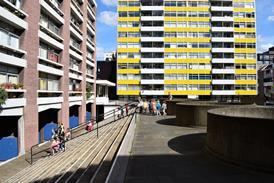Many countries offer prizes, not just to the winners but also to the runners up in a competition. In Switzerland, for example, the Andermatt masterplanning competition run last year had prizes of 30,000 Swiss francs (currently worth £20,000) for each of the five shortlisted firms.
The sums are not enormous, but they should at least allow a practice to break even. Duggan Morris, for example, has made a conscious decision to target Swiss competitions. The competition system works differently in different countries
as each country has adopted different elements of the voluntary part of the EU directive. This means that some competitions may be difficult to understand, but there can also be advantages.
For example, says Walter Menteth, chair of the RIBA’s Procurement Reform Group, if an architect gets onto a framework in Belgium their prospects will be far more certain than if they do so in the UK.
The common practice in the UK is for a mini-competition to be held for each project within the framework, with all practices eligible. The result is far too often that architects win no work at all. Menteth says that two members of his procurement group are on 15 frameworks between them and have had no work from them.
But in Belgium, three architects in rotation from the framework are selected to enter each mini-competition. And the successful practice is then precluded from going forward to the next competition. In this way, all should have a chance of some work.
In France, explains Richard Haut, who runs a bespoke service, recently rebranded as Archintel, whose sole purpose is to give architectural practices information on international competitions, the routine payment for producing a model will be €20,000 to €30,000, ensuring competing practices will not be out of pocket.











No comments yet